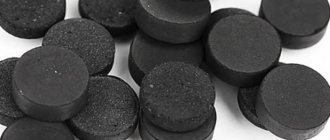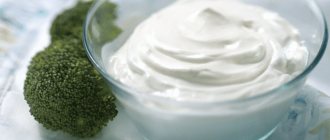A healthy, varied diet plays a big role in the life of any person, but it is especially important for nursing mothers. While everything is more or less clear about products that are safe for a baby while breastfeeding, the use of spices often raises many questions. So which spices are acceptable during lactation, and which ones should be limited?
- 2 Spices and breastfeeding
- 3 Spices Safe While Breastfeeding
3.1 Photo gallery: safe spices when breastfeeding
- 4.1 Photo gallery: spices, the use of which requires reasonable restrictions
The effects of herbs and spices on the body
Unlike flavorings, spices are always of plant origin (bark, roots, leaves, seeds, flowers or fruits of plants).
Seasonings, spices, spices - chemical substances, individual parts of biological products of plant origin and mixtures thereof, intended to improve the taste and aroma of prepared food products and ready-made dishes.
https://ru.wikipedia.org/wiki/Flavor_additives#Chemical_composition
Typically, spices and seasonings are used to mask the unpleasant taste of foods or, conversely, to emphasize their merits. Meanwhile, these supplements contain many phytocompounds that have anti-inflammatory, antibacterial and antifungal properties. They also contain vitamins, microelements and antioxidants. Spices have a positive effect on metabolic processes, help satisfy hunger faster, improve digestion and intestinal motility. In addition, spices have one undeniable advantage: they reduce the amount of salt, sugar and fat used, which makes food healthier.
Herbs and spices not only improve the taste of food, but also help it stay fresh and edible longer.
Spices and breastfeeding
More recently, nursing mothers were advised to adhere to a strict diet and, of course, not to eat spices. However, recent research shows that using small amounts of spices is quite safe for children. In many cultures, women eat hot and spicy foods without making any changes to their diet.

Most spices are safe for babies in reasonable quantities.
It is important to remember that spices, like other foods, can affect the taste and some properties of breast milk. This especially applies to hot spices. Your baby may not like the taste of milk after eating meat generously seasoned with garlic dressing. And after a portion of strong ginger tea, which is used for weight loss, the baby may become restless and excited. In addition, the baby may have an individual intolerance to certain spices, like any other food.
Therefore, to ensure that spices do not harm the baby’s health, follow these simple rules:
- Avoid eating spices during the first two months after giving birth;
- introduce one spice into the diet at a time in a small amount (a small pinch) and observe the baby’s reaction. If he becomes fussy, whiny, has trouble eating or sleeping, or shows signs of an allergic reaction (rash, difficulty breathing, slimy or greenish stool), remove the spice from his diet for a week and then re-eat a small amount. If negative reactions occur again, stop taking the supplement at least until you start complementary feeding;
- If you introduce a new spice into your diet, try not to try other new foods at the same time, otherwise it will be difficult to understand what exactly your baby is allergic to.
Some nutritionists believe that children whose mothers ate a varied diet during breastfeeding (including eating different spices) are better prepared to accept new foods when complementary foods are introduced.
It is better to choose for food not ready-made spice mixtures, which may contain harmful additives, but individual spices in unground form: cinnamon sticks, peppercorns, etc. Pepper can be added to hot dishes, and a cinnamon stick when preparing drinks or desserts for flavor .
Benefits of cloves for women
Cloves as a spice are extremely beneficial for the female body. It helps improve hematopoietic processes, vascular microcirculation and helps relieve nervous tension, stress and anxiety.
If there are no contraindications, you can use clove tea daily as a tonic and restorative drink. To prepare it, you will need the usual algorithm of actions, only along with the brewed tea you need to add approximately one clove bud per cup.
The cosmetic use of cloves is also known. To cleanse the skin, use a decoction or lotion from this spice, and clove oil is perfect for strengthening hair and toning the skin. You should also be aware that this product can cause a negative reaction in the body, so be sure to conduct a skin sensitivity test before use.
Pregnancy and breastfeeding
Caution should be exercised when consuming this spice during pregnancy and lactation. In folk medicine, cloves were previously used as an “abortive agent”, because its ability to provoke uterine tone and cause its contractions is known. This property can be used during childbirth to facilitate the process of delivery (after consulting a doctor, of course), but during the period of bearing a child it will lead to the threat of miscarriage.
After childbirth, cloves will help you recover faster by stimulating contractions, but excessive consumption can cause an individual reaction of the body and allergies in the baby.
Spices safe for breastfeeding
Some spices can be consumed by nursing mothers with food without worrying about the baby’s health:
- anise - fights constipation, has a positive effect on lactation;
- turmeric - contains the powerful anti-inflammatory substance curcumin, which is 50 times more effective than vitamins C and E;
- cardamom – used for stomach disorders;
- sesame - rich in saturated and unsaturated fats, dietary fiber, vitamins E and PP, group B, calcium, potassium, phosphorus and iron;
- vanilla - has a wonderful aroma and the ability to relieve pain from gout, arthritis and similar ailments, reduces cholesterol levels in the blood;
- saffron - increases libido, improves digestion, strengthens the immune system, is safe in reasonable quantities during lactation;
- oregano - contains vitamin K, essential for healthy bones, and many antioxidants;
- peppercorns – different types of peppercorns have anti-cancer properties;
- cumin - rich in iron, which provides a high level of energy and supports the normal functioning of the immune system, improves milk production;
- bay leaf - removes toxins from the body, has an antibacterial and wound-healing effect, improves digestion;
- fennel - has anti-inflammatory and antibacterial properties, improves memory, and also promotes fresh breath, has a positive effect on lactation;
- lemon balm - has a calming and relaxing effect, normalizes hormonal levels and strengthens the immune system, has a positive effect on lactation;
- nutmeg - fights germs that cause tooth decay;
- rosemary - relieves headaches, normalizes hormonal levels, and in small quantities has a positive effect on milk production;
- thyme - due to its antibacterial properties, promotes wound healing and accelerates recovery from colds.
Photo gallery: safe spices when breastfeeding
Anise reduces tension and stress levels One of the components of the spice mixture is curry Cardamom is used for stomach upsets Sesame can be included in the diet during pregnancy Vanilla reduces cholesterol levels in the blood Saffron in reasonable quantities is safe during lactation Recent studies have shown that oregano can prevent the growth of bacteria that cause some intestinal infections Different types of peppercorns have anti-cancer properties Cumin improves milk production Bay leaf improves digestion Fennel has a positive effect on lactation Melissa has a calming and relaxing effect Nutmeg fights germs that cause tooth decay Rosemary relieves headaches and normalizes hormonal levels Thyme promotes wound healing and speeds up recovery from colds
Homemade Dessert Recipes
The easiest homemade dessert to prepare is jelly made from directly pressed fruit juice or compote. It cooks quickly and cools in the refrigerator without requiring any attention.
Fruit juice jelly
Ingredients needed to make homemade jelly:
- juice or compote - 250 ml;
- sugar to taste;
- gelatin - 1 tablespoon;
- 50 ml water.
Cooking method:
- Pour gelatin with water and leave to swell for 40–50 minutes.
- Stirring constantly, heat until completely dissolved, never bringing to a boil.
- Cool to a temperature of 50–60 0 C and mix with sweetened juice or compote.
- Pour into molds and let set in the cold.
Fruit juice jelly is very easy and quick to prepare.
Baked apples
To make baked apples you need the following ingredients:
- green apples - 4 pcs.;
- powdered sugar - 4 teaspoons.
- egg whites - 5 pcs.;
- powdered sugar - 3–5 tsp;
- citric acid - on the tip of a knife.
Baked apples can be served with ice cream.
Necessary ingredients for homemade meringue:
Cooking method:
- Beat egg whites with powdered sugar and citric acid, adding powder to the whites a teaspoon at a time. Beat until stiff peaks form.
- Line a baking sheet with parchment and spoon out the beaten egg whites in the form of circles using a teaspoon.
- Bake in a preheated oven on low until creamy and crusty.
- Cool, then remove from the baking sheet.
Homemade meringue is an easy and healthy dessert.
It is safe to say that it is not only possible, but also necessary for a nursing mother to eat sweets. It is important to observe moderation in their consumption and choose healthy foods. Then they will not bring extra pounds and problems with the baby’s tummy and skin, but a good mood for his mother.
Many breastfeeding women note a strong desire to eat something sweet. This desire is quite simply explained. During breastfeeding, a woman spends a lot of energy - increased anxiety, stress, sleepless nights, and the lactation process. Having eaten sweets while breastfeeding, a woman feels a surge of strength, energy, and her emotional state improves.
Foods that contain large amounts of carbohydrates promote the production of the hormone serotonin in the body. It is responsible for maintaining body tone, eliminating insomnia, fatigue, and relieving pain. With a lack of serotonin, a person’s mood deteriorates and a desire to consume sweets appears. In addition, fatty, chocolate sweets activate the production of the “hormone of joy” - endorphin - in the body. That's why it's often just necessary to treat yourself to a piece of deliciousness.
But is it possible to have sweets while breastfeeding? Let's find out using the most popular sweets as an example.
Spices that should be limited in use
The baby’s internal organs and systems are not yet fully functioning, so processing some products passed through breast milk can cause significant difficulty. In addition, some spices adversely affect milk production. Even if you were used to a lot of spicy foods before pregnancy, you should limit your intake of the following spices to a minimum.
- Garlic has allicin, a substance with powerful antibacterial and antifungal effects. Regular consumption of garlic will help normalize cholesterol levels and lower blood pressure, but will significantly affect the taste of milk; during lactation, consuming 1-2 cloves of garlic is considered safe;
- cloves - improves digestion, but in large quantities can cause lethargy and absent-mindedness;
- cinnamon - reduces the risk of developing diabetes and heart disease, some nutritionists consider cinnamon to be a rather strong allergen, so a safe dose is a pinch of spice 2-3 times a week;
- basil - improves intestinal function, and also has antiviral and antibacterial properties; in large quantities it can negatively affect lactation;
- mustard - negatively affects the taste of milk;
- mint - traditionally used to improve digestion and relieve nausea, has a calming effect and normalizes sleep, negatively affects lactation, so it is better to limit its use to a minimum or use the plant for relaxing baths;
- paprika - rich in antioxidants, but can cause allergic reactions in infants;
- ginger - contains gingerol, which can reduce inflammation and reduce muscle pain. It is used to relieve nausea, improve the functioning of the gastrointestinal tract, and alleviate the symptoms of colds, but it has strong tonic properties and can make your baby overexcited and whiny.
Areas of application of cloves
Most often, recipes with this spice can be found on culinary websites. Ground cloves are a popular ingredient in cocktails, sweet pastries, fish and meat dishes. This spice has a characteristic pungent taste, so it is not used in large quantities.
Interesting! In addition, cloves can be used to provide an insect-repellent scent. The following can be called an original recipe for protection against mosquitoes and house flies. To prepare, cut the lemon in half and stick a clove into the core. By placing such a “device” on a window or above a door, you can protect yourself from insects getting inside for several days. To protect against mosquitoes during a forest walk, use a regular body cream (lotion), to which you need to add a couple of drops of clove oil. By smearing open areas of the body with this mixture, you can be confident in your protection.
Cloves are also used in medicine in the preparation of certain pharmaceutical preparations, to create perfumes and cosmetics.











